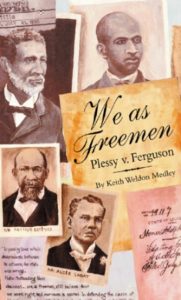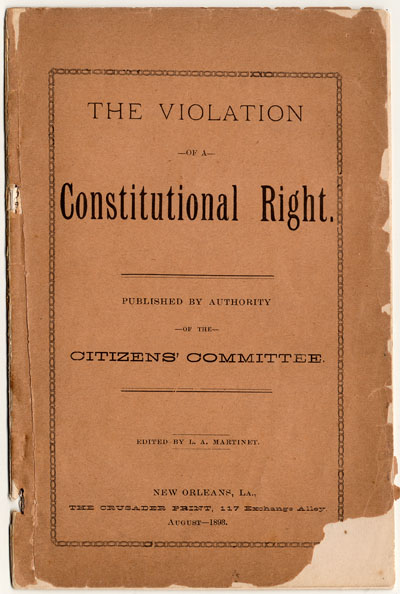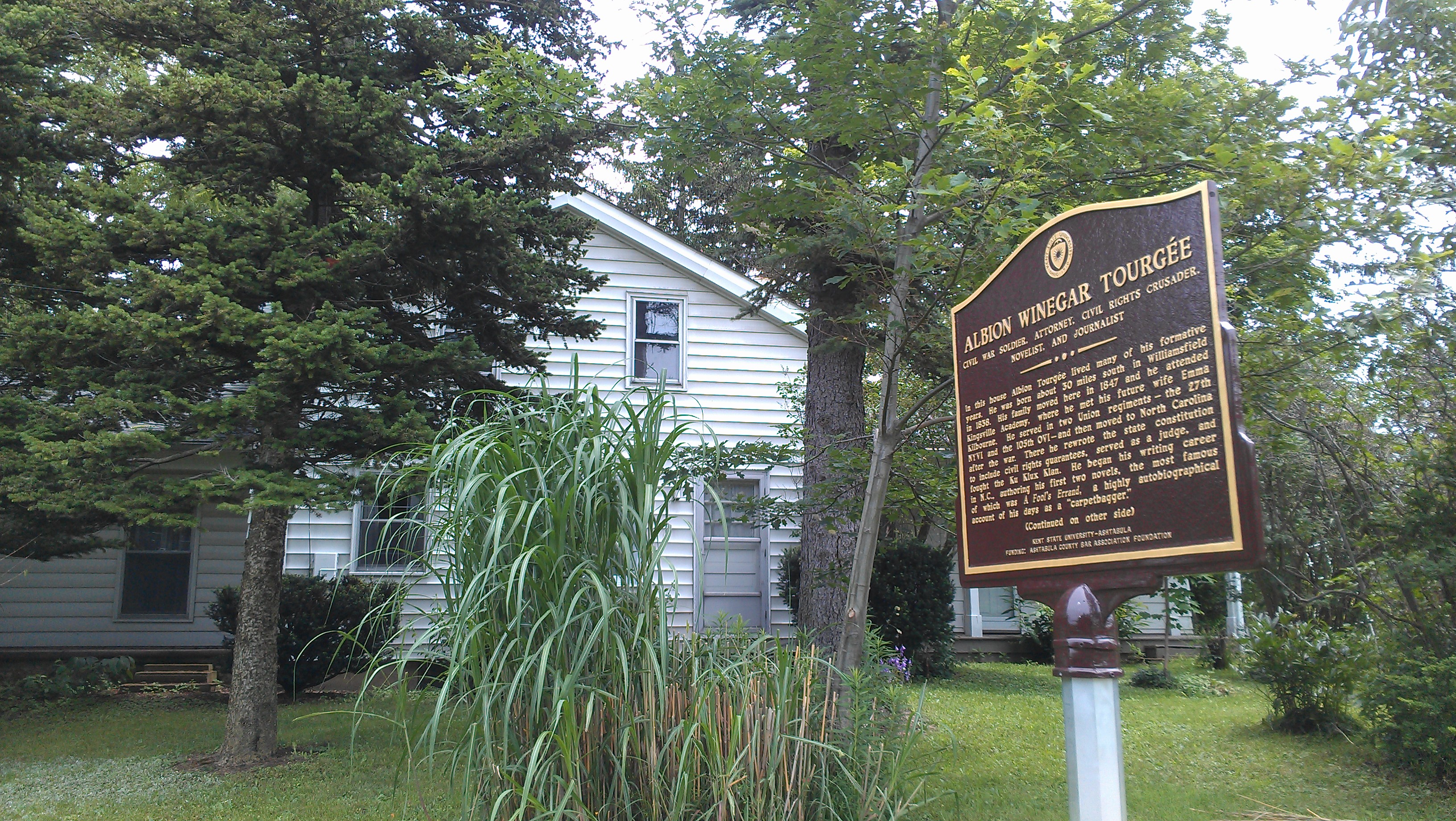 “We, as freemen, still believe that we were right and our cause is sacred.” — Statement of the Comité des Citoyens, 1896
“We, as freemen, still believe that we were right and our cause is sacred.” — Statement of the Comité des Citoyens, 1896
In June 1892, a thirty-year-old shoemaker named Homer Plessy bought a first-class railway ticket from his native New Orleans to Covington, north of Lake Pontchartrain. The two-hour trip had hardly begun when Plessy was arrested and removed from the train. Though Homer Plessy was born a free man of color and enjoyed relative equality while growing up in Reconstruction-era New Orleans, by 1890 he could no longer ride in the same carriage with white passengers.
Plessy’s act of civil disobedience was designed to test the constitutionality of the Separate Car Act, one of the many Jim Crow laws that threatened the freedoms gained by Blacks after the Civil War. This largely forgotten case mandated separate-but-equal treatment and established segregation as the law of the land. It would be fifty-eight years before this ruling was reversed by Brown v. Board of Education.
Keith Weldon Medley brings to life the players in this landmark trial, from the crusading black columnist Rodolphe Desdunes and the other members of the Comite des Citoyens to Albion W. Tourgee, the outspoken writer who represented Plessy, to John Ferguson, a reformist carpetbagger who nonetheless felt that he had to judge Plessy guilty. [Publisher’s description.]
ISBN: 9781455617234 | Pelican Publishing Company
Reviews
Expanding his 1994 Smithsonian magazine article, Medley deftly puts in colorful context the U.S. Supreme Court’s signal 1896 decision sanctioning so-called separate but equal facilities in public accommodations in what has been called apartheid American-style. His ten chapters transform the six-year Plessy v. Ferguson case from a century-old legal landmark into a resonant illustration of the remorseless racism that eroded the civil rights promises made by the United States during Reconstruction. Rich in family and community history and local lore, Medley’s work details the world of New Orleans’s free people of color, who produced and scripted the events, recruited the cast of players, and staged the dramatic challenge to segregation. An excellent complement to the scholarly works of Charles A. Lofgren, Ono H. Olsen, and Brook Thomas, this remarkable read is recommended for public and academic library collections on U.S., African American, and local history. —Library Journal
Medley’s detailed history stands on its own as the most complete historical accounting of one of the Court’s most infamous decisions. —Law & Politics Book Review
An excellent complement to the scholarly works of Charles A. Lofgren, Otto H. Olsen, and Brook Thomas, this remarkable read is recommended for public and academic library collections. —Library Journal
Also by Keith Medley
 Black Life in Old New Orleans
Black Life in Old New Orleans
Book – Non-fiction. By Keith Medley. 2014. 288 pages.
Historian Keith Weldon Medley recounts the rich history of African and African-American cultural influence on one of America’s most-beloved cities. This in-depth account is one of personal significance for the author, who was raised in New Orleans’ Faubourg Marigny and whose family history is tied to the area. Through fifteen self-contained chapters, Medley takes a chronological and focused look at some of New Orleans’ most prominent people and places. Read more.









Twitter
Google plus
LinkedIn